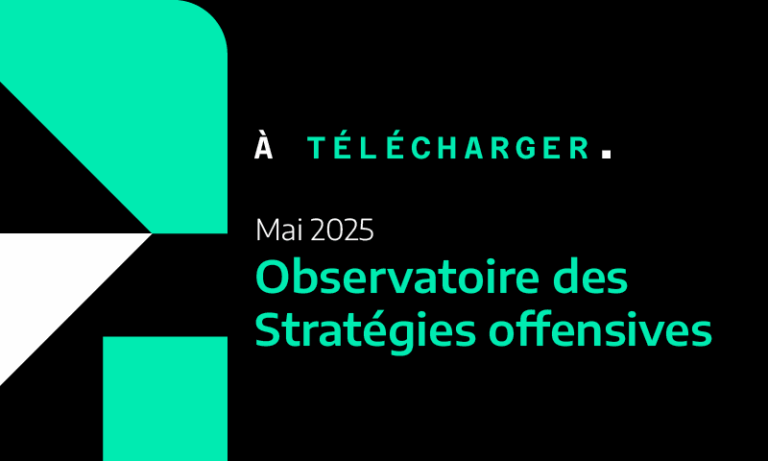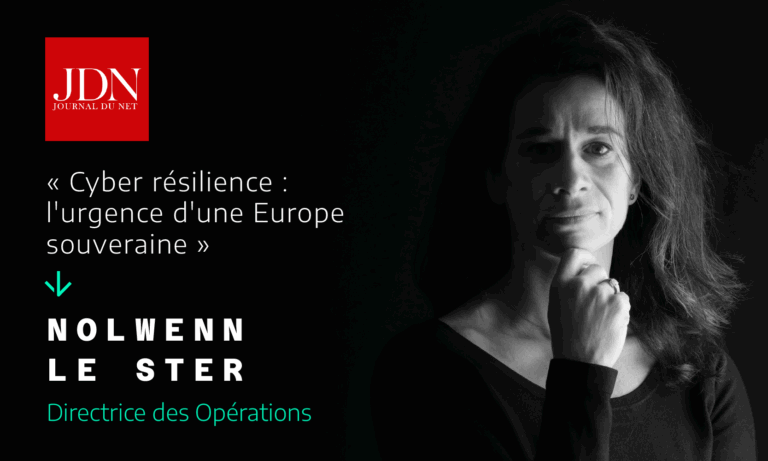14/05/2024
CTI
Elections: a year of threats – Episode 3
The third episode of our elections series is out!
This week, we focus on the European elections in June, which are facing a feeling of « déjà vu » with regard to the phenomenon of disinformation. For several years now, the European Union has been condemning the risk of interference and disinformation, particularly during the elections. We will see how, through artificial intelligence, this threat can materialise.

Citizenship and political issues
The European Union election will occur in June 2024. For several years now, the European Union has been warning about disinformation and interference during elections, particularly after November 2016 US presidential election. In a report by the Special Committee, members of the Parliament warn that foreign interference, disinformation, and attacks on democracy are likely to increase and to become more sophisticated during the European election. They also condemn the ‘“disinformation for hire’”. They want a coordinated EU strategy to include new initiatives alongside improved enforcement of existing provisions. The report focuses particularly on Russian and Chinese interferences in the EU. The European Union identifies the influence and manipulation of citizens through social networks and the increasing use of artificial intelligence.
Three major examples of foreign interference whose aim was to manipulate election results in a European election can be highlighted to represent the stakes and threats for Europeans:
- Influence, disinformation and malicious cyberactivity during the Brexit referendum in 2016.
Influence and interferences reinforced by bots and fake social media accounts during the Catalan referendum in 2017.
Hacking of Emmanuel Macron’s En Marche campaign during the 2017 French presidential election alongside with disinformation campaign and leak of information.

In varietate concordia?

Focus on disinformation
According to a Rand Corporation report, AI technology propaganda and deepfakes can distort our perception of reality and could affect society, given the degree of trust that society places on video footage. Moreover, it has become very easy to have an AI dedicated to disinformation – in fact, it can cost just 400 dollars to build one.
- Manipulate elections: IA can create ‘rumour bombing’, a theory in which rumour can be seen as part of a larger propaganda strategy, to deter voters from going to vote, or on ‘swing voters’ who make up their minds at the last minute.
- Exacerbate social division: IA can be used to amplify dissension between opposing camps and fanning the flames of resentment with tactics focused on emotion, compassion, and injustice towards others.
- Lower trust in institutions: IA and particularly deepfakes can be created to change the perception of those in power, as that was the case recently with a video of Ursula von der Leyen.
- Undermine journalism and sources of information: A proliferation of deepfakes could lead to a decline in confidence even in legitimate institutions because it would be difficult to distinguish the true from the false.

Protection or development?
The European Union adopted the Digital Services Act (DSA) in 2022 to fight disinformation with new measures to mitigate risks. The EU has also reached an agreement on the AI Act in 2023.
Artificial intelligence should not be seen solely as a threat. While the EU is adopting texts to protect itself, it should also be thinking about pave the way for this technology, so as not to lag behind other countries, and create cohabitation with AI, to avoid a future foreign monopoly.

References
- EL PAÍS Englis. https://english.elpais.com/elpais/2018/01/11/inenglish/1515667883_820857.html
- European Parliament. https://data.europa.eu/doi/10.2861/343651
- Times of Malta. https://www.stiftung-nv.de/sites/default/files/securing_democracy_in_cyberspace.pdf
- European Parliament. https://www.europarl.europa.eu/news/en/press-room/20230524IPR91908/foreign-interference-meps-call-for-urgent-protection-of-2024-european-elections
- WIRED. https://www.wired.com/story/400-dollars-to-build-an-ai-disinformation-machine/
- Foreign Policy. https://foreignpolicy.com/2020/07/21/britain-report-russian-interference-brexit
- La Tribune. https://www.latribune.fr/opinions/tribunes/pourquoi-l-intelligence-artificielle-ne-peut-pas-devenir-un-monopole-992430.html
- EUR-Lex. https://eur-lex.europa.eu/legal-content/EN/TXT/?uri=celex%3A32022R2065
Vilmer, Jean-Baptiste Jeangène. « The “Macron Leaks” Operation »










